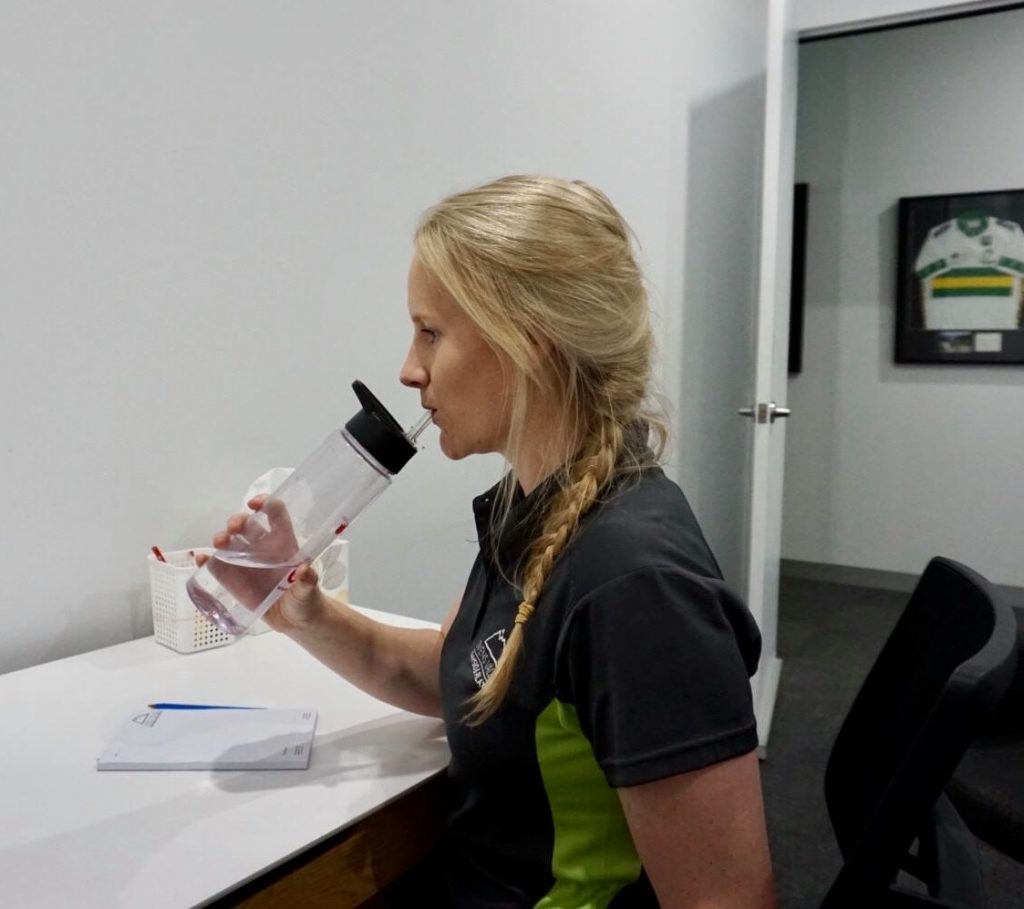29 Jan Hydration

By James Thomas
Water is an essential part of human life, and with our recent run of hot weather it’s important to review the importance of staying well hydrated, as well as go over some strategies to increase your water intake.
To highlight the importance of having good levels of water in our bodies, it’s valuable to remember how much of our bodies consist of water. According to a recent study, the brain and heart consist of 73% water, the lungs are 83% water, muscles and kidneys are 79% water, and even the bones consist of 31% water. Even a small change in the water content of these organs can have an effect on the function of them.
Staying well hydrated can help to maintain energy levels and brain function, regulate body temperature, boost metabolism, reduce the incidence of headaches and constipation, maintain blood pressure and volume, lubricate joints, and generally maximise physical performance.
We lose water through a number of ways in the course of everyday life.
The main one we notice is urination. The average person needs to urinate four to seven times per day, sometimes more if water intake is adequate.
Breathing is another way we lose fluid from our bodies. When we breathe in, our airways humidify the air. When we breath out, this moisture is carried with our breath.
During exercise, the average person loses 0.8 to 1.4 litres of fluid through sweat alone. In hot or humid conditions, this is increased, and doesn’t take into account the increased rate of breathing, and water demand from the muscles, further highlighting the need to drink more water while exercising.
Dehydration can vary from very mild to life threatening. Symptoms of mild dehydration are likely things many of us experience on a daily basis. They include:
- Thirst
- Dry, sticky mouth
- Reduced frequency of urination
- Dark yellow urine
- Headaches
- Muscle cramps
The best way to remain well hydrated is to take regular small drinks of water. The amount of ideal water intake is different for everybody, and while the old eight glasses of water a day rule is a good guide, this amount isn’t actually supported by evidence, and everybody’s needs are different. The best way to assess your level of hydration is through your urine, which should be a light straw colour.
Hot drinks such as coffee and tea, as well as juices and other cold drinks all contribute to your daily fluid intake, as do water rich foods such as watermelon, cucumber, zucchini and lettuce.
Other ways to increase your water intake are adding natural flavours like herbs or fresh fruits to your water, and you can even install a water drinking app on your smartphone such as My Water Balance to help monitor and increase your intake.
If you’re able to pay attention to these symptoms and utilise these tips, then you’ll be taking a big step to helping your body function as intended, and help prevent illness and injury.



